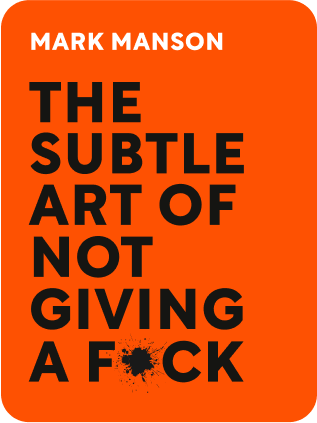

This article is an excerpt from the Shortform book guide to "The Subtle Art of Not Giving a F*ck" by Mark Manson. Shortform has the world's best summaries and analyses of books you should be reading.
Like this article? Sign up for a free trial here .
How can dealing with rejection be a positive thing if rejection makes you feel bad? Why does rejecting some of your options make you happier?
In a culture where you’re expected to be open to all new experiences, it can be difficult to learn to say “no.” However, when you learn to reject some of your options, and deal with rejection from others, you’ll actually be happier.
Keep reading to learn why dealing with rejection is beneficial.
Dealing With Rejection Is Healthy
Our culture tells us to always be positive and accepting of everything — to say yes. But you have no values if you view everything as equally valuable. Values give your life meaning and purpose.
Choosing certain values automatically precludes others. For example, if you choose the value of having a good marriage, you have to reject values that would undermine that, like indiscriminate sex. We’re defined by the values we reject as well as by those we choose. We have to do both. And part of learning rejection is dealing with rejection from others as well.
It comes back to giving a f*ck about some things, and rejecting or choosing to not give a f*ck about others.
We’re Happier With Fewer Options, So Reject Some
The idea of narrowing our options to be happy is counterintuitive — we typically think the path to happiness is having unlimited options and freedom. But meaning comes from caring a lot about select things. Freedom gives you too many options and you end up caring about nothing in particular.
We actually tend to be happier with less. The more options we have, the less satisfied we are with the options we choose, because we keep thinking of the ones we didn’t choose. You keep wondering if you’d be happier with a different choice. Psychologists call this the paradox of choice.
- When faced with an overabundance of options, some people delay making a choice in order to keep their options open as long as possible, or they avoid commitment.
When you continually chase new experiences, there are diminishing returns — you gain less satisfaction from each additional experience.
- Traveling is an example. The first country you visit outside your home country makes a lasting impression on you because of your narrower experience. But the dozens of countries you visit after that have less and less impact on you. The same principle applies to acquiring possessions, hobbies, partners, jobs, and friends.
- The older and more experienced you get, the less significantly each additional experience affects you. You focus more on choosing the people and experiences that bring you the most satisfaction, and reject those that don’t make the cut.
Rather than following the cultural dictate to keep pursuing a broad range of things or experiences, you should focus on a narrower range of things and depth of experience. Prioritize quality over quantity. Here’s why:
- Commitment to less brings you freedom. It allows you to focus on what’s most important to you and achieve more than you would if your efforts were scattered.
- Commitment makes decision-making easier and dispels the fear that by choosing you’re going to miss out. When you’re committed to something, you don’t need to keep pursuing more.
Pursuing a broad range of experiences may be useful when you’re young and figuring out what interests you most. But the greatest satisfaction lies in commitment and depth, in your relationships, career and life interests.
Rejection is a Social Skill
Rejection is an integral part of committing ourselves to the values that mean the most to us. In a different way, rejection is also essential in building healthy personal and love relationships.
Rejection is a social skill everyone needs to learn. People try to avoid being rejected or rejecting others because it makes them feel bad.
But if you don’t practice rejection, you’ll get stuck in situations that make you unhappy, although feeling bad is what you were trying to avoid in the first place.
- Trying to avoid rejecting or confronting anyone and to accept everything is a form of entitlement. Entitled people believe they should feel good all of the time; rejection feels bad, so they avoid it. As a result they become self-absorbed and lack values.
- Avoiding rejection (both being rejected and doing the rejecting) can make us feel better temporarily, but it isn’t the way to have a meaningful life.
Practicing rejection strengthens our relationships. When we’re comfortable saying no and getting no for an answer, that means our relationship is based on honesty and openness.
- When Author Mark Manson visited Russia he found Russians to be refreshingly blunt and honest, unlike Americans who always try to be pleasant, and are therefore more superficial.
Superficial communication, which emphasizes appearances (smiling and being polite), developed because it creates economic opportunity: It leads to job opportunities through establishing a lot of superficial connections and improves sales.
However, it’s a dishonest and deceptive way of communicating. We focus on being likable to the point that we change our personality to suit the circumstances. Superficial communication makes us feel insecure because we don’t know what to believe or trust.

———End of Preview———
Like what you just read? Read the rest of the world's best book summary and analysis of Mark Manson's "The Subtle Art of Not Giving a F*ck" at Shortform .
Here's what you'll find in our full The Subtle Art of Not Giving a F*ck summary :
- How to clarify what's important to you (and not just what you think should be important)
- Why it's okay for things to not always go well in life
- Why you need to care about fewer things






